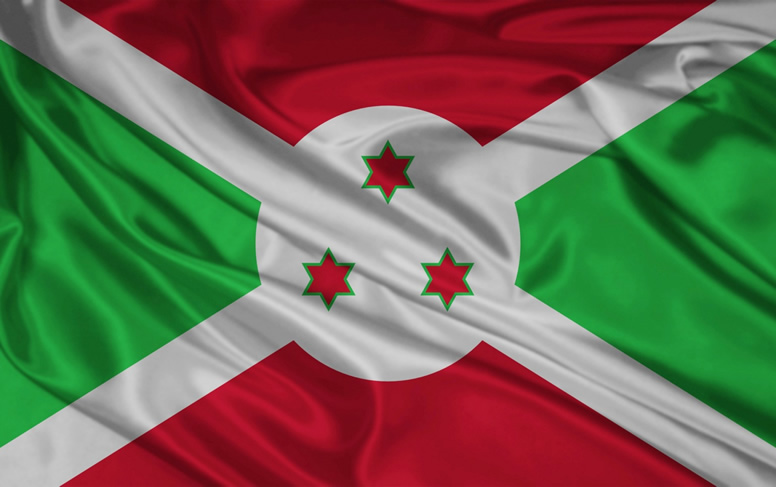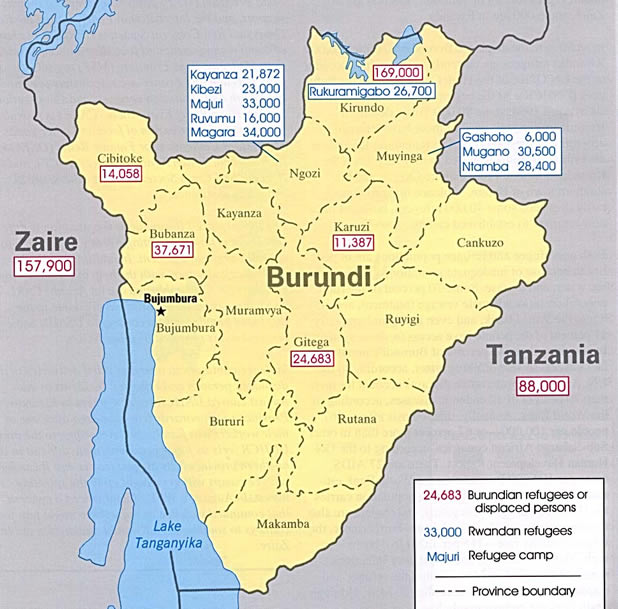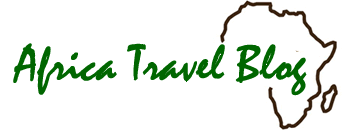A small landlocked Country in central Africa, Burundi is one of the poorest nations on the African Continent mainly due to a lack of natural resources and dependency on a fragile Agricultural sector. The Country is produces tea and coffee mainly for export purposes. Burundi has since its independence from Belgium in 1962 struggled to maintain peace and stability in Governance.
The Country has since its autonomy been ruled by a series of military governments and armed conflict has claimed many lives here for decades. The most recent was the Genocide of 1993 when the Country’s first democratically elected President; Melchior Ndabaye, a Hutu was assassinated by Tutsi Army Officers. This plunged the Country in turmoil and heightened ethnic violence and armed conflict in the country. A peace treaty paved way for elections in 2005 with Pierre Nkurunziza elected as President.
Administration:
Burundi is divided into 17 administrative provinces; Bubanza, Bujumbura Mairie, Bujumbura Rurale, Bururi, Cankuzo, Cibitoke, Gitega, Karuzi, Kayanza, Kirundo, Makamba, Muramvya, Muyinga, Mwaro, Ngozi, Rutana, Ruyigi.
Population:
As of 2005, Burundi had an estimated population of about 8 million. Health problems have however seriously affected mortality rates and a HIV/ AIDS infection rate worsens the situation.
Burundi History:
Burundi was first inhabited by the Twa a Pygmy tribe which however is now a minority accounting for about 1 % of the Country’s population. The Twa were followed by the Hutu then later the Tutsi. A monarchial form of Government then developed and ruled over most of the Country’s present boundaries. The Kingdom of Burundi, led by the Mwami (King) came into existence from about the 16th Century and was interrupted during colonial rule.
Colonial History:
Designated as Germany Colony following the Berlin Conference of 1885, Burundi was annexed as part of German East Africa along with Rwanda and Tanganyika. The Germans however did not establish their presence until 1896 when a military outpost was built here. During the 1st World War, Burundi was taken over by United Nations Trusteeship under Belgian Administration. The Country had a peaceful transition to independence on the 1st of July 1962, which led to the return of rule under the Mwami.
Post Independence:
The Monarchy however did not last long and ethnic tensions heightened Post-independence between the Hutu and the Tutsi tribes. The end of the monarchy came in 1966 when Mwami Ntare V was overthrown by the Burundian Army. This led to decades of armed ethnic conflict and Burundi was ruled by a series of military governments and at small intervals were short lived democratic governments. Though a peace treaty was reached in 2005, armed conflict take place in parts of the Country. Burundi at present has an elected government under Presindent Pierre Nkurunziza.
Burundi Economy:
Decades of civil war and political instability have hampered economic development in Burundi. A return to peace following the subsiding of armed conflict and the signing of peace agreements have resulted in improved economic conditions in recent years.
Ranked as one of the ten poorest Countries in the world, the Burundian economy relies mainly on agriculture; with produce mainly for domestic use. The Country produces coffee and tea which are its major export commodities mainly to European Markets.
Major industries in the Country include; textiles and clothing, cement, food processing and construction.
Currency:
The Franc was adopted as the Country’s currency from Belgium during the colonial era. Then known as the Belgian Congo Franc, the currency was introduced in 1916. In 1960 the Burundi Franc (BIF) was introduced as the official currency.
The Flag of Burundi:

The current flag of Burundi was adopted on the 28th of March 1967. The three stars at the center represent the Hutu, Tutsi and Twa which are the three main tribes in the Country. The green color represents hope, white is for peace and red is for the struggle for independence.
Burundi Map:

Burundi Facts & Figures:
-Location: Central Africa, west of Tanzania, south of Rwanda.
-Capital City: Bujumbura.
-Population: 8, 090,068.
– Other major towns and cities: Muyinga, Gitega, Bururi, Cibitoke, Ngozi, Bubanza.
– Religion: Christian, Traditional, Islam.
– Languages: Kirundi, French and Swahili.
– Currency: Burundi Franc.
Burundi Currency:
The Franc was adopted as the Country’s currency from Belgium during the colonial era. Then known as the Belgian Congo Franc, the currency was introduced in 1916. In 1960 the Burundi Franc (BIF) was introduced as the official currency.
Denominations:
One Franc is equivalent to 100 centimes. Due to a poorly performing economy and political instability, the currency has steadily performed poorly since its inception and at present, there are no coin denominations for centimes. Coin denominations exist for 1, 5 and 10 Francs. Banknotes exist for 10, 20, 50, 100, 500, 1000, 2000, 5000 and 10000 Francs.
Exchange Rates against major currencies:
At the time of writing, 1 US $ was equivalent to 1,138 Burundi Franc.
Public Holidays in Burundi:
Normal business hours including government offices in Burundi are usually between 7.30 am and 12 pm and many close for lunch and reopen from 2 pm to 5pm.
Public Holidays in Burundi:
January:
-New Year’s day on the 1st of January
February:
-Unity Day on the 5th of February,
March:
-Labour Day on the 12th of March,
May:
-Ascension Day on the 25th of May
July:
-Independence Day on the 1st of July
August:
-Assumption on the 15th of August
October:
-The Anniversary of Rwagasore’s Assassination on the 13th of October
-Anniversary of Ndabaye’s Assassination on the 21st of October
November:
-All Saints’ Day on the 1st of November
December:
-Christmas Day, 25th December.
Emergency numbers in Burundi:
There is no single emergency number in Burundi. Different police departments and medical institutions have their own phone numbers. There are a number of public and private clinics and hospitals in Bujumbura. There are also a number of pharmacies within the City centre.
For General Police services, you can call: 257 22 3777 in Bujumbura.
Medical Services:
Hopital Militaire de Kamenge:
Boulevard du 28 Novembre
BP 5117 Bujumbura,
Tel: 257 22 2082.
Hopital Prince Regent Charles:
Avenue du Port
Bujumbura,
Tel: 257 22 8435.
Centre Hospitalo-Universitaire de Kamenge:
Boulevard du 28 Novembre
BP 2210 Bujumbura,
Tel: 257 23 2048.
People And Culture
Food in Burundi:
Most foods eaten in the Country are produced locally and sold at markets in urban centers. Common foods in Burundi include sweet potatoes, bananas, sorghum, cassava, maize (corn) and beans; which in various combinations form the variety of Burundi’s staple foods. Red kidney beans and rice are the most popular foods in Burundi.
Most restaurants in the Country serve local cuisine though there are a handful of foreign restaurants in Bujumbura especially at the major hotels serving Asian and European Cuisine.
Fish is plentiful and is more easily available than beef. Fresh fish is sold at markets and is gotten from Lake Tanganyika.
Alcoholic Drinks:
Urwarwa (Banana Wine): this is a local traditional homemade alcoholic drink. Primus Beer is the main beer produced in Burundi.
Education in Burundi:
With still sub standard literacy levels, education faces major problems in Burundi. Civil wars and political instability have greatly hampered the development of education systems in the Country. It is estimated that only about a half of the Country’s population can read and write.
The education sector in the Country also has to operate on limited government funding. There is also a shortage of teaching staff and problems with the Country’s education syllabus. UNESCO is currently running programs to assist with the development and provision of education in Burundi.
The University of Bujumbura is the sole institute of higher learning in the Country.
Burundi Culture and Arts:
Burundi is a country rich in ethnic culture. Even after independence and the disintegration of the monarchy, the rich culture of the Burundi people continues to exist as is evidenced in traditional song, dance, poetry and storytelling.
There are also a variety of traditional sports and games for entertainment such as wrestling and urubugu (similar to a board game played using pebbles on the ground).
Important museums and cultural centres displaying works by local artistes and different facets of the Country’s history include; the Burundi Museum of Life, the Literature Center and National Museum in the town of Gitega.
Sports in Burundi:
Civil war and instability has seriously hampered the development of sports in Burundi. The Country has a poorly developed sporting infrastructure which means that Burundi’s participation on the international sporting stage is limited. Football is the most popular sport in Burundi and the National Team known as Les Hirondelles (the Sparrows), participate in the regional East and Central Africa Cup.
The team is yet to make an impact on a larger scale and has repeatedly in recent years failed to qualify for either the Africa Cup of Nations or the World Cup despite displaying an array of talent and potential.
Burundi’s biggest sporting export is Shabani Nonda who plays for Italian Serie A team AS Roma. Prior to joining the Italian Club, he featured in the impressive Champions league campaign of 2004 for AS Monaco of France and was the top scorer in the French League for the 2002/2003 season. Now a citizen of the Democratic Republic of Congo, Shabani turns out for the Congolese National team.
Athletics: Burundi won its first Olympic Medal at the Atlanta Olympics in 1996 when Venuste Niyongabo won the 5,000 metre men’s race.
Health in Burundi:
Like other public services in the Country, health services in Burundi have suffered due to decades of instability and conflict in the Country.
Public health facilities such as hospitals and dispensaries are ill equipped to deal with serious medical cases. Medication and standard vaccines are a problem for many Burundians.
HIV/ AIDS provides the biggest health problem in Burundi. In 2003, it was estimated that about 250,000 people were living with HIV/ AIDS in the Country. Other major health risks are Malaria, Typhoid Fever, Hepatitis A and Diarrhoea. Water hygiene is also a problem and safe tap drinking water especially out of Bujumbura is hard to come by.
Communication in Burundi:
An underdeveloped communications infrastructure, internet access is available within the City of Bujumbura and is offered by some of the major hotels here. Landlines are limited and mobile telecommunication is still limited to a small part of the population.
According to cia.gov:
Telephones-main lines in use: 23, 900 (2003).
Telephones-mobile cellular: 64,000 (2003).
International Country Code: 257.
Radio Broadcast Stations: FM 4, Shortwave 1 (2001).
Television Broadcast Stations: 1 (2001).
Internet Hosts: 155 (2005).
Internet Users: 25,000 (2005).
Tourism
Travel to Burundi:
You should contact your local foreign ministry for information and travel advice before planning to visit Burundi. Though a certain level of stability now prevails following peace agreements, conflict has been known to flare up in parts of the Country.
For visa applications, the Country has a number of Embassies in foreign countries including the United States, Belgium, China, Japan and France. Your travel agent may also be able to assist you with this.
Travel to Burundi is mainly by air with flights landing at the Bujumbura International airport, the key airport in the Country. There is also a port in the City from where boat and ferry services operate on Lake Tanganyika linking the Country with neighboring Tanzania and the Democratic Republic of Congo.
Rusizi National Park:
Rusizi is Burundi’s premier tourist attraction, a nature reserve situated near the small town of Kayanza. The Park is also easily reachable by road from Bujumbura. Wildlife here features; hippos, crocodiles, antelopes and a variety of bird species.
Other national parks and reserves in Burundi are; the Kibira National Park and the Ruvubu National Park.
Hotels in Burundi:
There are a few decent establishments in Burundi mostly in the City of Bujumbura. Bujumbura is the Capital of Burundi and the main tourism and travel hub, home to the Country’s sole international airport. Leading hotels in the Country include;
The Novotel Bujumbura: one of the leading establishments in the Burundian Capital, the Novotel is a three star hotel situated at Chaussee du People Murundi near the City Centre. The hotel’s 103 rooms feature satellite television, and other facilities include; a swimming pool, restaurant, café, bar, meeting facilities and tennis courts.
Hotel Club Du Lac Tanganyika: another of Bujumbura’s premier hotels, the Club Du Lac is a lakeside resort situated at Chaussee d’Uvira near the shores of the Lake Tanganyika. From here, visitors can indulge in a variety of water sports including windsurfing and sailing. The lake is also popular for fishing and there are beach areas where one can relax. Other services at the hotel include; internet access, gym, conferencing facilities, restaurant, bar and swimming pool.
Other popular hotels in Burundi are; Club de Vacances Hotel Bujumbura, Source Du Nil Hotel and Hotel Burundi Palace
Transport in Burundi:
The transport infrastructure in the Country is underdeveloped and in parts of the Country, roads have been destroyed due to decades of conflict. There are no railway lines in Burundi though a feasibility study is set to be carried out on the construction of a railway line to link the Country with neighboring East and Central African Nations including Uganda, Rwanda and the Democratic Republic of Congo.
Public transport in the Country and within major towns and cities consists of buses and private vans or minibuses.
Airports:
The Bujumbura International Airport is the sole international airport in the Country located about 10 km from the City Centre.
Ports:
The Port of Bujumbura on the shores of Lake Tanganyika is the key harbor in Burundi. From here, boat and ferry services operate to neighboring Tanzania and the Democratic Republic of Congo.
Consular Services
Embassy Directory:
Burundi Embassies in Asia:
The Burundian Embassy in Japan:
The Burundian embassy in Japan is situated at 3-27-16 Nozawa, Setagaya-Ku in the City of Tokyo. For more information on the embassy and consular services in the Country, you can call: 3443 7321 or Fax: 3443 7720.
The Burundian Embassy in China:
The embassy of Burundi in China is situated at 25 Gunghua Lu, Jianguomenwai in the City of Beijing. For more information on the embassy and consular services in the Country you can call: 6532 2328 or Fax: 6532 2381.
Burundi Embassies in Europe:
The Embassy of Burundi in the United Kingdom:
The Burundian Embassy in Great Britain is situated at 26 Armitage Road in London. For more information on the embassy, consular services and advice on visiting Burundi, you can contact the embassy on: Tel: (44) 181 381 4092 or Fax (44) 181 458 8596.
The Embassy of Burundi in France:
The Burundian Embassy in France is situated at 24 Rue Raynouard in the City of Paris. For more information including inquiries on consular services, you can contact the embassy on: Tel: (33) 145 20 60 61 or Fax: (33) 145 20 03 11.
The Embassy of Burundi in Germany:
The Embassy of Burundi in Germany is situated in the City of Berlin at Berliner Street 36. For more information on the embassy you can get in touch by either: Tel: (49) 30 86399028 or Fax: (49) 30 86391085.
The Embassy of Burundi in Belgium:
The Embassy of Burundi in Belgium is situated at Square Marie-Louise 46 in the City of Brussels. For more information on the embassy you can get in touch by: Tel: (2) 230 45 35 or Fax: (2) 230 78 83.
Burundi Embassies and Consulates in North America:
The Burundian Embassy in the United States:
The Burundian Embassy in the United States is situated at Suite 212, 2233 Wisconsin Avenue NW, in Washington DC. For more information on the Burundian Embassy and consular services including travel advice and visa applications, you can contact the embassy on: Tel: (202) 342 2574; Fax: (202) 342 2578.
The Burundian Embassy in Canada:
The embassy of Burundi in Canada is situated at Suite 815, 325 Dalhousie Street in Ottawa. For more information on the embassy and consular services you can contact the embassy on: Tel: (613) 789 0414; Fax: (613) 789 9537.

